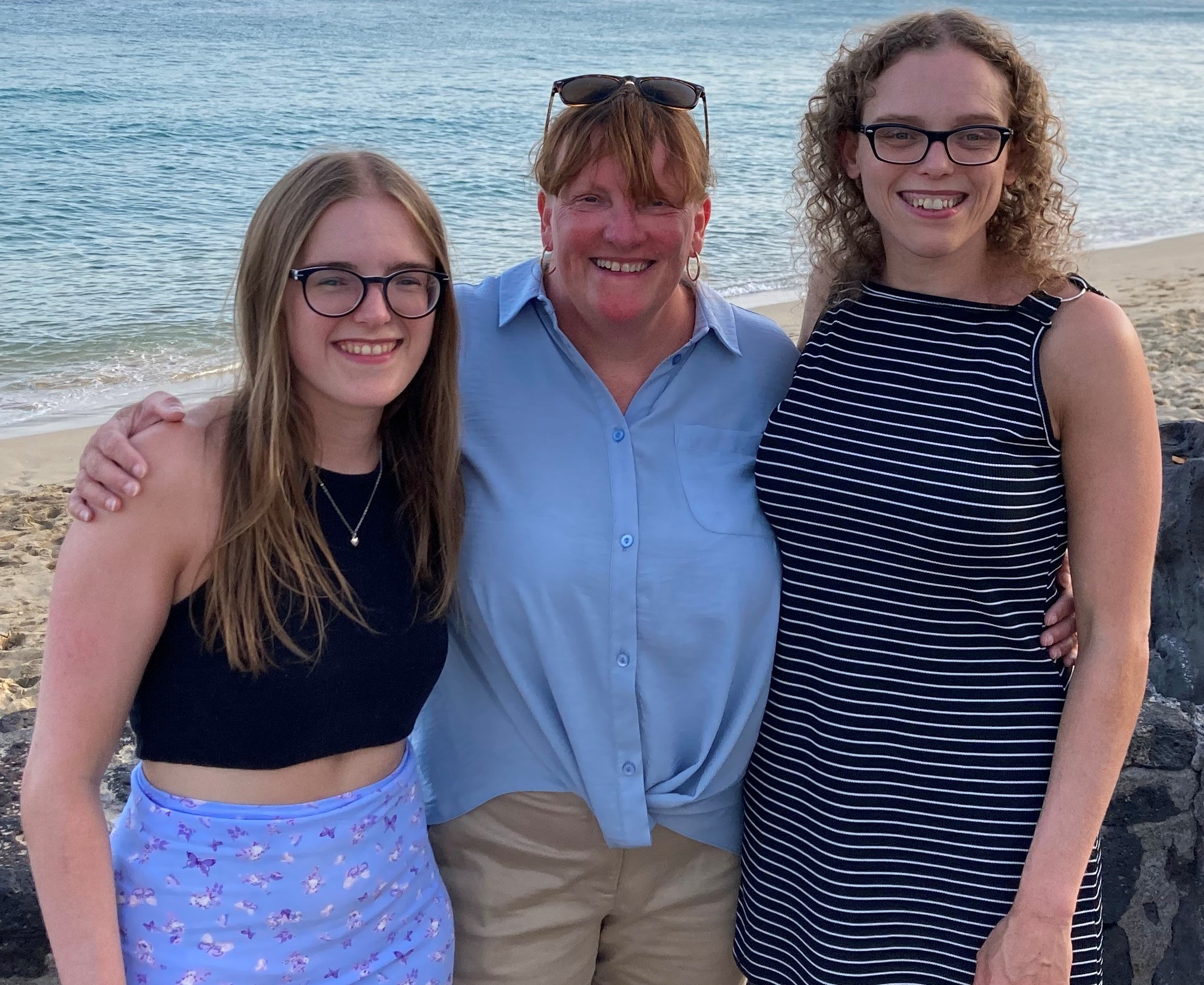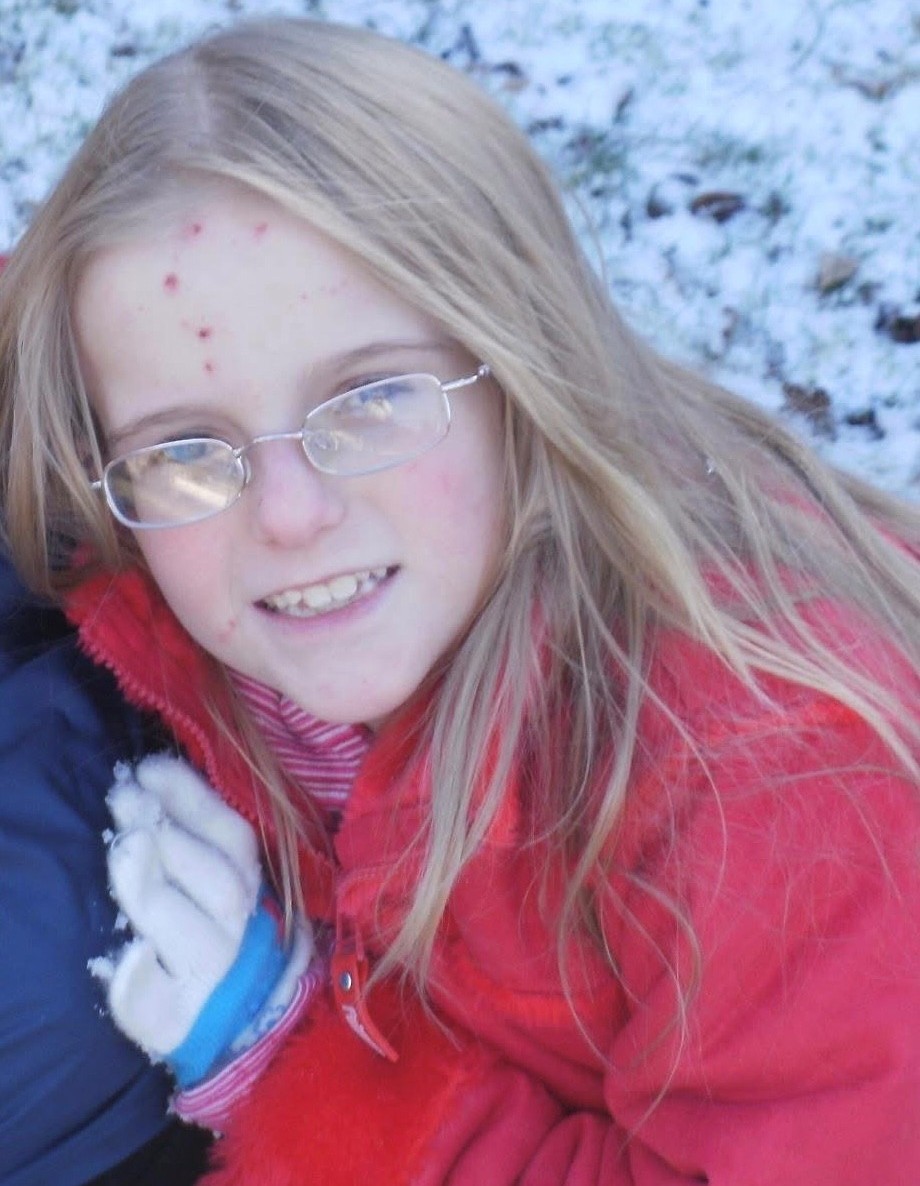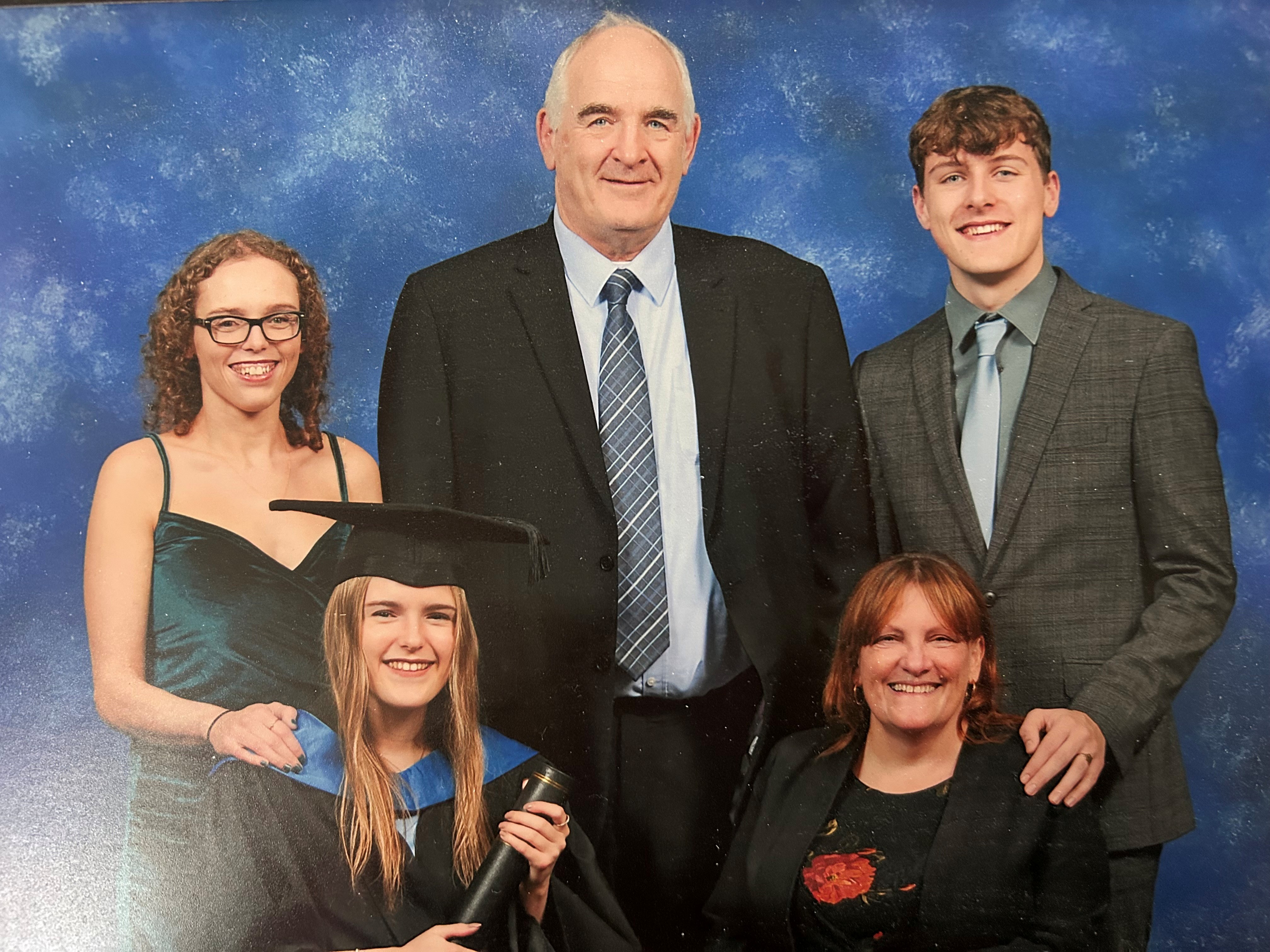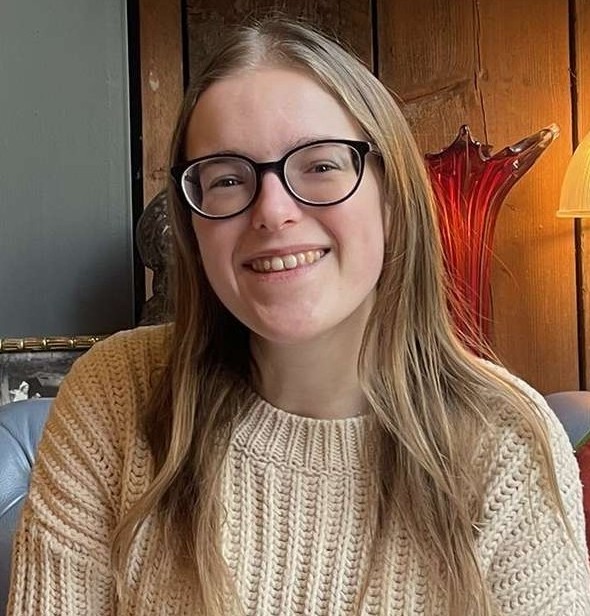
Alagilles is a genetic condition affecting around 1 in 30,000 live births. So what’s it like growing up with such a rare condition and how does it affect school, work and social life? We’re very grateful to 24-year-old Katie, for sharing her experience.
My Alagilles diagnosis came earlier than most. This is because both my mum and my older sister have Alagilles (although my younger brother doesn’t) so I was tested pretty much as soon as I was born and found to have it too. Growing up with a health condition, you don’t know any different so, although I did have quite a few hospital appointments, it was the norm to me, and I didn’t think too much about it.
As a child the main thing I recall about Alagilles was the severe itch it gave me. I had so many cuts and scratches that I was often too embarrassed to wear shorts and T-shirts like other children did in the summer. People used to assume that I had eczema and I was happy to let them think that – I didn’t particularly want to talk about my liver condition.
I was also smaller than all my classmates – I’m still only 4 foot 10 – and I was a very picky eater and struggled to gain weight, which meant that a sickness bug which most children would shake off after a few days could be enough to put me in hospital. I remember having a reward chart to encourage my eating and at school there was a lovely dinner lady who would sit with me at lunchtime and encourage me to eat!

Being the smallest in the class did lead to some bullying on occasion but I had a good group of friends who always stood up for me, so it wasn’t something that ever developed into a real problem and made me not want to go to school.
My high school was similarly supportive. Having Alagilles meant I wasn’t allowed to do contact sports but I didn’t want to anyway so that was fine! Also, I was given extra time in exams because of the fatigue. One incident which does stick out from high school is when a teacher called me a midget! I was so surprised that a teacher would speak like that and my classmates were too and called him out immediately, even though most of them had no idea about my Alagilles. Although this was clearly not great from the teacher, I was surprised and really touched by reaction of my class and will always remember that!
One thing which happened throughout primary and high school is that because I’ve always been small for my age, teachers would often tend to ‘baby’ me and treat me as if I were much younger, I know they didn’t mean to, it was just something me and my parents couldn’t help noticing. My height is something I still sometimes struggle with, but I’m learning to be more confident in myself and not let it hold me back!

The first time I became aware of Children’s Liver Disease Foundation was when I was 14 and I went on the outward-bound residential trip, Closer to the Edge. My parents were supporters of the charity and had encouraged me to go. I wasn’t too sure about going away with a bunch of people I didn’t know but I was so glad I did! It was a brilliant experience, and it was so good to meet other people my age who live with liver disease. One thing that stood out was that unlike school trips, when it came to taking my daily medication, rather than it being just me, it was everyone on the trip! I also took part in the CLDF Weekender which was another amazing opportunity to meet people and helped me to be more confident and open with people about my condition.
After school I went to Northampton University to do a degree in Early Childhood Studies. I was nervous, but the uni gave me a lot of support. During the first year I was quite homesick, as it was such a big change and unfortunately then Covid hit, so second year was mostly remote learning. But I really enjoyed the third year and made the most of the experience.
By the time I went to uni, I’d become much more relaxed about telling people about my condition, so all my close friends knew about it and were very understanding. Of course, like any student I had plenty of nights out and although I am able to drink a little in moderation, it’s not in the way that most students do! This never mattered, as my friends completely accepted my situation and never pressured me to drink to excess.

After I graduated, I was fortunate to get a job as a teaching assistant in a school for children with special needs. I had done work experience at this school during uni, so when I saw the position advertised, I applied straight away. I work full time – 8.30 to 3.30 five days a week and by its nature, it’s a role which is exhausting but also so rewarding and I love it!
When you have a lifelong health condition, it’s understandable to worry about how much you should say about it in interviews. My advice is to be honest about what support you’ll need, but also confident in yourself and your ability. You can’t pretend your condition doesn’t exist but you’re about more than that. I’ve found that if you’re open and honest, people respect that. I was really touched when one of my colleagues had researched Alagilles to find out more about what it is and how it might affect me.
One of the symptoms of my condition is fatigue and there are days when I come home and need a little power nap before I do anything else. But I do feel lucky to have a job which I enjoy so much, and it’s taught me that that working with children with special needs is where I want to make my career.
The fatigue also sometimes makes it difficult to concentrate for very long periods of time. When I was learning to drive, I found two-hour lessons too much, so only had one-hour lessons, but it didn’t matter, as I recently passed my test and love the independence of becoming a regular driver.

About 12 years ago, I agreed to take part in a trial for a drug to combat pruritus, the severe itch which comes with Alagilles which affected me so badly as a child. The doctor who led the research was amazing! She was the first to involve me fully in all discussions about my health and helped me understand my condition better and grew my confidence because of this. The medication has changed my life, it’s reduced the itch so much and unlike when I was younger, I can wear what I want now!
Health wise, I’m currently doing well. I take my daily medication, and I go to Kings every three months for the drug trial and annually for my liver check-up. I’m still in touch with CLDF through being on Hive+ and, while I haven’t needed to ask for help with any problems, I think it’s great that there is a supportive community and one point of contact for all liver issues that we can call on.
When I’m not working, I enjoy playing the piano, going out with my friends and I love a holiday! Later this year, I’m planning to take a sabbatical from work and solo travel to Thailand and Bali, joining a group tour! My parents have encouraged me to go for it, so I’m putting plans in place and hopefully that will be the subject of my next blog!

